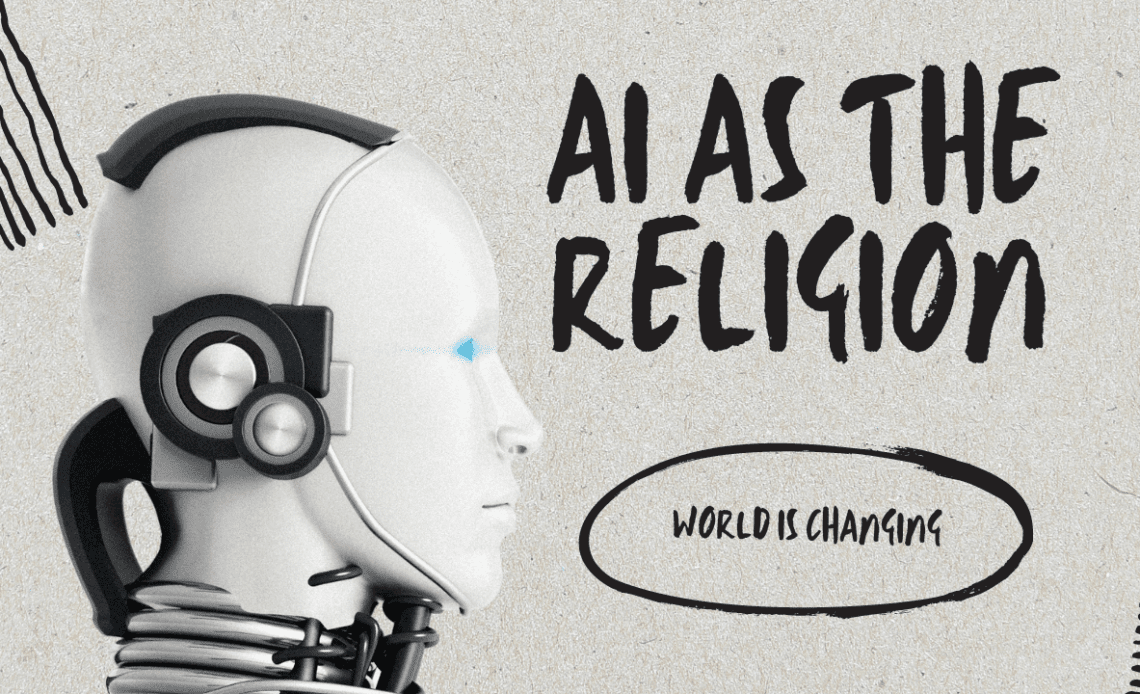The Future of Religion
Artificial intelligence (AI) technology is constantly evolving and being adopted into various industries, and religion is no exception. As faith communities try to stay current with technology, they are exploring new ways to engage with their members.
One such way is through AI chatbots, which can be utilized to deliver sermons and answer questions. However, as this technology is still in its nascent stages, many are questioning its accuracy, reliability, and impact on human emotion in the context of faith. In this blog post, we will examine in which way AI chatbot technology is being used in religion, and explore its potential impact.
Part 1: Rabbi Joshua Franklin’s AI Sermon at the Jewish Center of the Hamptons
One of the most high-profile implementations of an AI chatbot in the context of religion took place at the Jewish Center of the Hamptons in New York, where Rabbi Joshua Franklin used a chatbot called “ChatGPT” to deliver a sermon during the High Holy Days. ChatGPT, developed by OpenAI, is a machine learning model that can be trained on vast amounts of data and then generate human-like text based on prompts given to it. In the case of Rabbi Franklin’s sermon, he provided the chatbot with an outline and some ideas, and then the chatbot generated a full sermon based on that input.
While the use of an AI chatbot in this context generated buzz and excitement, it also raised questions around its accuracy and reliability. Can a machine truly understand the nuances and complexities of religious texts and traditions? Can it convey the depth of human emotion necessary for a powerful sermon? These are questions that faith leaders and their followers are grappling with as they consider the implementation of AI technology in their religious practices.
Part 2: Buddhism and Faith Practices Unaffected by AI Chatbots
Buddhism is a religion that has always placed an emphasis on personal practice and experience, rather than relying solely on religious texts or sermons. Therefore, AI chatbots are not likely to have as significant an impact on Buddhist practices as they might on other religions. Buddhist meditation and mindfulness practices are focused on each individual’s internal experience, rather than on external factors like sermons or readings.
Additionally, there is a deep understanding in Buddhism of the importance of human connection and community. AI chatbots cannot replace the need for human interaction and community in religious practices. Even if a chatbot can provide answers to questions, it cannot provide the same sense of belonging and communal support that is essential in many religious contexts.
Part 3: An Interfaith Perspective
From a broader interfaith perspective, the implementation of AI chatbots in religious contexts raises important questions around the role of religion and faith in society. Some worry that the adoption of AI technology in religion could further automate our lives and fragment human society.
They argue that religious interaction and connection should remain fundamentally human experiences, free from the interference of machines. On the other hand, proponents of AI technology in religion argue that it has the potential to make religious practices more accessible and inclusive, particularly for those who may not have access to physical places of worship or religious communities.
Are Chatbots Changing The Face of Religion?
As AI technology continues to grow and become more complex, its impact on religion and faith communities will be an ongoing topic of discussion. While it is clear that AI chatbots have the potential to make religious practices more accessible and inclusive, they also raise important questions around the role of human emotion and community in religious contexts.
Ultimately, the adoption of this technology must be balanced with an understanding of its limitations and the irreplaceable human experiences that are an essential part of religious practices. As we continue to navigate this uncharted territory, it is important for faith leaders and their followers to consider these questions and approach the implementation of AI chatbots with thoughtfulness and care.
CLICK HERE TO READ MORE ON WEBTHAT NEWS


